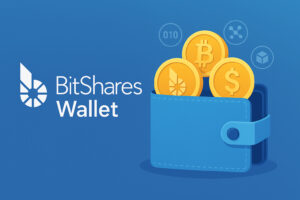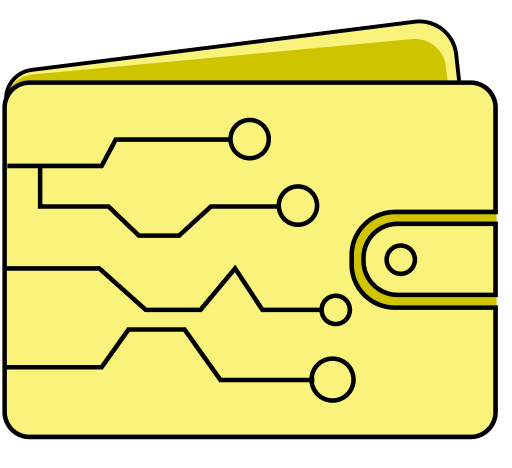Introduction

Multi-asset wallet for trading, storage, and governance on BitShares.
BitShares wallet is the official tool used to store, send, and manage assets on the BitShares blockchain. It supports not just BTS, the native token, but also a variety of smartcoins and user-issued assets within the ecosystem. As a decentralized and open-source platform, BitShares requires wallets that reflect its core values: transparency, user control, and censorship resistance. This wallet serves as the user’s entry point to the BitShares ecosystem and offers both basic and advanced functions for interacting with the network.
What is BitShares?
BitShares is a blockchain platform designed for decentralized finance (DeFi). Launched in 2014, it was co-founded by Dan Larimer, who also worked on EOS and Steemit. Unlike many blockchains, BitShares is known for its focus on financial instruments, speed, and scalability.
The BitShares blockchain uses a Delegated Proof of Stake (DPoS) consensus mechanism, which allows it to process thousands of transactions per second. BitShares supports decentralized exchanges (DEXs), smartcoins (crypto assets pegged to real-world values like the USD), and user-issued assets.
Given the system’s flexibility, a secure and user-friendly wallet is critical. That’s where the BitShares wallet plays a central role.
Core Features of the BitShares Wallet
The BitShares wallet comes with a range of built-in tools that help users engage with the network. It is more than just a digital vault for BTS or tokens – it’s a control panel for accessing the full range of BitShares services.
First, it allows users to create a BitShares account, which is required for interacting with the blockchain. These accounts are human-readable (e.g., john-bitshares) and replace long alphanumeric wallet addresses.
Second, the wallet supports transfers between accounts and access to the decentralized exchange. This includes placing limit orders, participating in trading pairs, and managing assets directly on the blockchain.
Third, users can interact with smartcoins like bitUSD or bitCNY, which are price-stable tokens backed by BTS collateral. The wallet allows users to borrow, repay, and manage these assets with just a few clicks.
Types of BitShares Wallets
BitShares offers multiple types of wallets depending on the user’s needs and level of control. Each comes with trade-offs in terms of security and convenience.
Web Wallet:
The most commonly used version is the BitShares web wallet, accessible through official portals like wallet.bitshares.org. It runs inside a browser and is non-custodial, meaning users hold their own private keys. The keys are stored locally on the browser unless exported manually.
Desktop Wallet:
For those who prefer more control, the BitShares desktop wallet is available for Windows, macOS, and Linux. This version offers a deeper set of tools, including voting for witnesses and committee members, multi-signature control, and direct interaction with blockchain parameters. It’s a go-to choice for power users and developers.
Mobile Wallets:
There are also third-party mobile wallets that support BitShares, although users must exercise caution. Since BitShares is a niche blockchain, not all mobile wallets are audited or trustworthy. Always verify the source before downloading.
Paper and Cold Storage:
Advanced users may also opt for cold storage solutions. Since BitShares uses a unique account model, users can generate offline keys and keep them secure using tools like paper wallets or air-gapped devices. This method is ideal for long-term holders.
Account Security and Private Key Management
BitShares uses a role-based key structure to separate account permissions. Each account has at least two keys: one for “active” operations (like transfers or trades) and one for “owner” authority, which is the highest level of control.
The wallet helps users back up and manage these keys. It’s essential to save backup files and keep multiple copies in secure locations. Losing the private keys means permanent loss of access, as there is no central authority to recover the account.
The system also allows for hierarchical permissions and multi-signature configurations, which are especially useful for organizational or shared accounts. All of these features are manageable directly within the wallet interface.
Decentralized Exchange Access
One of the most powerful features of the BitShares wallet is built-in access to the decentralized exchange. BitShares pioneered blockchain-based order books before most current DEXs even existed.
From within the wallet, users can:
-
Place buy and sell orders
-
Trade BTS, smartcoins, and user-issued tokens
-
Set limit or market orders
-
View real-time price charts
-
Track trade history and open orders
The interface is visual and includes candlestick charts, order books, and trade volumes. It’s particularly attractive for traders who want decentralized options without relying on external platforms.
Custom Tokens and Smartcoins
The BitShares wallet supports the creation and management of user-issued assets (UIAs). Individuals, companies, or projects can create custom tokens with unique names and rules.
For example, a business could create a loyalty token or a stablecoin pegged to a local currency. The wallet provides full access to issue, distribute, burn, or restrict these assets according to user-defined settings.
In addition, the wallet supports smartcoins, such as bitUSD or bitEUR, which are pegged assets maintained through collateralized debt positions. These assets provide stability and are usable within the ecosystem as a medium of exchange.
Governance and Voting Features
As part of its Delegated Proof of Stake model, BitShares allows users to vote for witnesses, committee members, and blockchain parameters. The wallet interface includes governance tools that make this process accessible.
Users can:
-
Cast votes for block producers (called witnesses)
-
Vote on network fees and proposals
-
Choose committee members who help manage protocol-level decisions
Participation in governance is not mandatory but encouraged. Voting power is based on the amount of BTS held or staked. The wallet makes it easy to delegate votes or change them at any time.
Supported Platforms and Development Community
BitShares wallet is maintained by a global open-source community and is available on:
-
Windows
-
macOS
-
Linux
-
Web browsers (Chrome, Firefox)
-
Selected Android/iOS clients (third-party)
All code is open source and available on GitHub under the BitShares organization. Developers and contributors actively maintain the wallet to stay compatible with protocol upgrades and to fix security issues or usability bugs.
The community uses platforms like Telegram, Reddit, and Discord for support and development discussions. Documentation is available through GitBooks and wiki pages maintained by volunteers.
Conclusion
The BitShares wallet is a powerful and flexible tool designed to meet the needs of users interacting with the BitShares blockchain. It goes beyond basic storage to offer a complete interface for trading, governance, and asset management.
Whether you’re a casual user looking to store smartcoins or a trader using the DEX, the wallet is built to handle it. With full control over private keys and an open-source foundation, it reflects the values of decentralization and transparency that define the BitShares ecosystem.
As BitShares continues to evolve, the wallet remains central to its use – providing access, security, and control to users worldwide.














 Twitter
Twitter
 Telegram
Telegram
